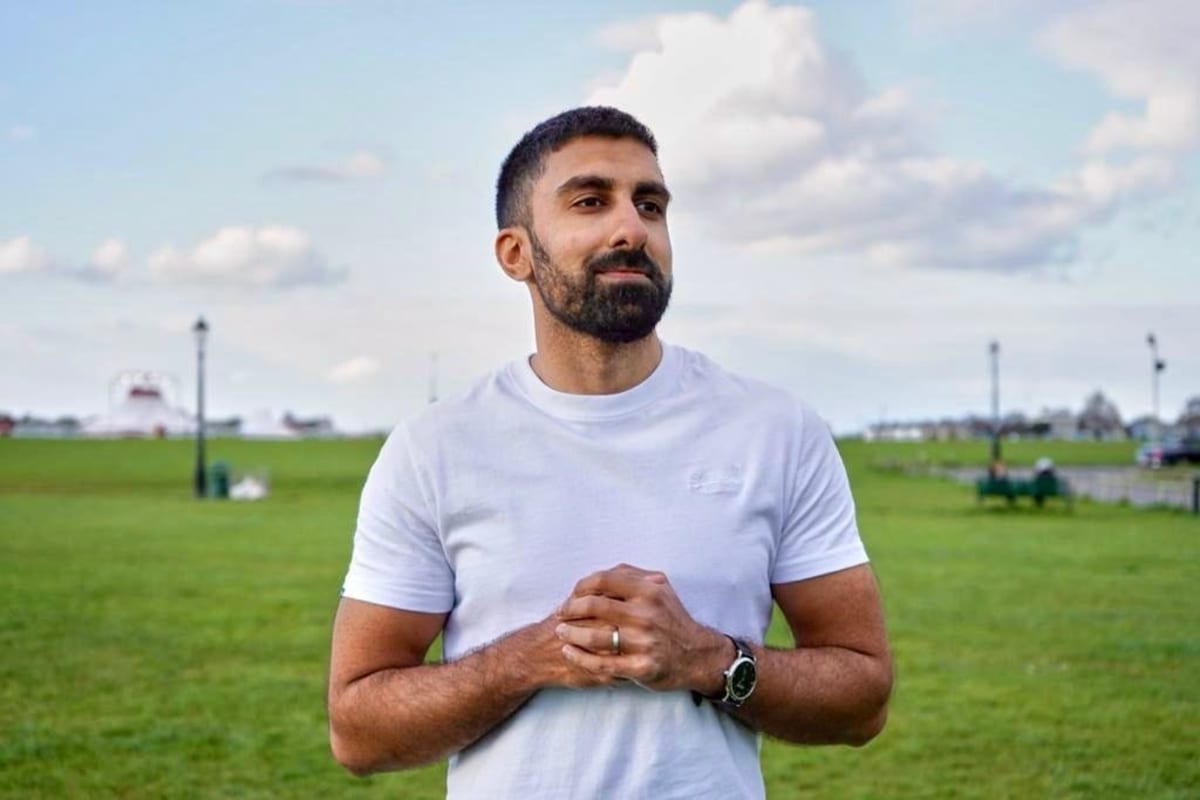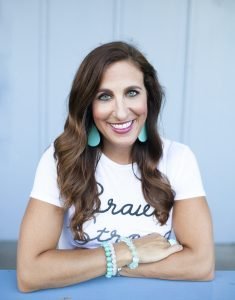Last updated on August 23, 2022
London-based coach Manj Bahra helps clients recover from heartbreak, guides them through career transformations, and maintains a popular blog on relationships. Read on to learn how he left his job in banking (mid-pandemic!) to find fulfillment through helping others.
Coaching Focus: My coaching practice has two main arms: Career & Executive Coaching, and Relationship Coaching. In both, I help clients to create a powerful vision, develop an unshakeable mindset, and then take massive action towards making it all happen!
Location: London, United Kingdom
Connect: You can find Manj online at his website, on Instagram, and on Medium.
Tell us about your journey as a coach.
I grew up in South-East London in a middle-class family. My dad was an entrepreneur, and, in hindsight, that shaped my views on the world considerably. I didn’t have any negative beliefs about money, and I always believed in self-sufficiency and making things happen.
After school, I studied Geography at University College London (UCL). Luckily I got a job on the IT Helpdesk, which later helped me secure internships at Microsoft and UBS (the Union Bank of Switzerland). From there I landed a graduate role at JP Morgan. Over ten years, I worked my way from technology to front-office Product Management in Foreign Exchange and Rates. My final role was as a VP earning six figures.
Getting to that level made me realize money and titles alone won’t make you happy. My fulfilment came from helping people, like in my first job at UCL. I loved self-development, so I took a sabbatical in 2018 to study neuro linguistic programming (NLP) and other disciplines. I also started a blog about relationships on Medium.com which attracted my first clients. I knew coaching was my passion, but I was scared to commit.
In 2021, I realized I was kidding myself and quit JP Morgan. I went full-time into my business, embracing all the fear of failure and choosing freedom and fulfilment above all else.
Since then, I have coached clients in 23 countries and found what was missing all along—a sense of passion, purpose, and making a difference. I’ve now expanded into career coaching alongside my work on relationships and self-discovery.
We want to destigmatize talking about money, including how much coaches make. Would you please share with our readers any relevant revenue figures from your business?
My first year of coaching was largely pro bono. After that, I started at £40 a session, with discounted rates for blocks of 4 and 8 sessions. For six months, I followed the same strategy whilst incrementally increasing my prices to £100 a session.
When I came to leaving my full-time job, I realized that this model was not sustainable, and also reflected on how I saw myself as a coach. One thing I am sure of is that you get what you pay for in the service industry. I decided to invest heavily in my own skill-set as a coach and increased my prices knowing the value I brought to the client.
I now offer 3-month programs only, of ten sessions at a time. Without giving all the intimate details, I have made more than $100,000 in the last year of coaching alone. This is the result of a lot of work, though it shows what’s possible with the right mindset.
For aspiring coaches, I believe the key is to recognise the value you bring, but also to keep investing in your own coaching abilities so you truly give the client a phenomenal experience they never forget.
What courses, programs, or certifications have you done? Would you recommend them, and for whom?
- NLP (Neuro Linguistic Programming) Master Practitioner
- MBIT (Multiple-Brain Integration) with Adrian Hales
- High Performing Coach (HPC)
- Mindvalley Certified Life Coach
What advice or perspective might you give to a new coach trying to get her first clients? Any advice they should ignore?
I think it’s great to start coaching people for free, but not for too long. Get a few under your belt, and focus on serving them and really nailing the basics.
When it comes to getting clients, you don’t have to jump to high-paying ones straight away either. We all start somewhere.
If you create content that helps others, you will open opportunities.
A mantra I have used is “create content and have conversations.” If you create content that helps others, you will open opportunities. Putting service first is a great way to ensure you stay out of your head and become a great coach.
What are your thoughts on “choosing a niche” as a coach?
When people ask what made me successful, I believe two things are hugely responsible: having a niche (psychology of dating) and having online authority (building my Medium blog).
Niche is tricky because the temptation is to get it perfect. Rather, I prefer to think of it as a living, breathing organism that is subject to change. You are not tied to it forever, so don’t waste too much time perfecting it.
Think about a group of people you want to help, what you want to help them with, and what outcome it will give them. Use what you have experienced in your life as inspiration—what have you overcome, or who were you five years ago?
Don’t get hung up—try things and test them out. You can’t learn to swim without getting in the water.
What books have significantly influenced your life? What are your key takeaways from these books?
Raving Fans by Ken Blanchard and Sheldon M. Bowles – an awesome book which reminds us how we are all so used to poor service. When you go above and beyond, it’s so surprising for the customer they tell everyone about you. Aim to create an experience that generates raving fans, because satisfied isn’t enough.
Do the Work by Steven Pressfield – a fantastic short book that explains how to keep things simple and actually create things by overcoming resistance, the force behind procrastination.
The Go-Giver by Bob Burg and John David Mann – a phenomenal fable in the mould of Raving Fans that shows us how to create stratospheric success through five simple laws.
If you received an extra $10,000 to spend on your business, how would you spend it and why?
Learning new coaching skills. Too many coaches rely on one set of tools. We need a tool-box to serve clients.
My best investments have been in creative methods like Projective Coaching and Multiple Brain Integration. Just using language can limit the insights you give clients.
Remember, when you serve your clients powerfully, they will refer you to others. You won’t need to market so aggressively again.
What are some of your favorite affirmations or mantras currently? Why?
“Create content, have conversations” – This gets right down to serving people and always opening opportunities.

Many people don’t know they want coaching until you help them to see something they couldn’t themselves. How do you do that? Create content, have conversations…
When you feel overwhelmed, stressed, or have lost your focus or motivation, what do you do?
I always hit the gym, but I also favour Transcendental Meditation. I love to read, and sometimes playing video games helps me unwind.
Do you have any examples of how a “failure” set you up for later success?
I bought a gym franchise in 2015 thinking it was my ticket to freedom. It was the opposite, and I pulled out quickly, losing £50,000 of my own savings.
In hindsight, it was a life-saver. That franchise went bust two years later, and I would have lost £250,000 in bank debt.
It also made me realize what I really wanted—not money, but freedom and fulfilment. I had signed myself up for something where I needed to be paying attention 24/7 and relied on cutting costs to make money. It wasn’t enjoyable and didn’t help people in the way I wanted.
That experience allowed me to get clear on what I truly wanted, and take the time to build a business that met those desires. Coaching is a great fit because I work when I want, with amazing people, and I get to make a difference. Money is just a bonus.
If you could put a message on a huge billboard—getting a message out to millions—what would it say?
“The fear never goes away. Stop running and face up to it—the life you want is on the other side.”
Is there anything else you’d like to add?
Becoming a coach can be a lonely journey, so I am always available to offer insight to anyone who feels stuck or just wants to talk about their journey!
The Life Coach Magazine staff is your team for high-quality content on topics from personal development, to coaching tips, to how to grow your coaching business.










Be First to Comment